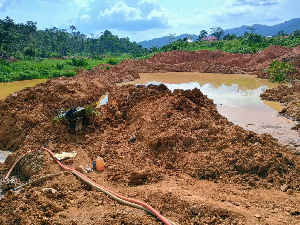One industry which has suffered beyond any reasonable doubt by the COVID – 19 Pandemic has been the events industry for very obvious reasons, especially as all the safety protocols interface with all aspects of the players and stakeholders.
Ghana’s emerging industry covers the following specific professions, careers, trades, vocations, specializations, or areas including Catering Companies, Signage & Stationery, Conference Planners & Organizers, Corporate Gifts & Apparel Suppliers, Exhibition Stand Builders & Designers, Outdoor Advertising & Promotions and Packaging.
The others include Event Management, Architecture, Planning & Organization, Point-Of-Sale Advertising, Conference Solutions – Interpretations, Translations & Rapportéuring, Décor & Design, Entertainment Companies & Artistes, Professional Speakers, Masters of Ceremonies (MCs), Production Houses, Reproductions & Printing Companies, and Print, Electronic & New Media Platform Owners,
The rest are Rental Companies, Event Rights Owners – Concessions, Merchandising, Media Rights, Syndicating Companies & Licensing, Insurance Covers for events, Special Event Producers, Staging, Lighting & Audio Visuals, Technical Services & Products, Conference-Support Services, Accreditation Systems, Travel & Transport, Venue Owners & Hospitality, Protocol Services & Security and Promoters of Events.
The peripherals and associated industries include Fashion Industry – Seamstresses & Tailors, Hairdressers & Stylists, Janitorial Services, Host Cities – MMDAs, Ministries of related activities such as Aviation, Transport, Volunteers Programme, Health, Tourism & Culture, Sports, Local Government, Chieftaincy and specialized authorities, commissions and designated offices and Sports Federations.
Definitely for an expansive area as the Events Industry, the issues confronting it in the midst of the Coronavirus on the face value are primarily on two levels, local and international, especially as we have witnessed the total disruption of all social and formal events, including religious – churches & mosques, education – schools, recreation, sports – participation and preparations for local and international games and competitions and festivals.
The losses though not quantified or assessed yet but we are sure they will ran into millions, if not billions of Ghana Cedis, and to the extent that it will be worthwhile for an impact assessment of the COVID-19 to be made over the events industry – both in terms of revenue losses, collapses of businesses, loss of jobs, loss of sponsors and commercial rights.
It is worthwhile to state that the government should of necessity encourage all the major stakeholders of the Ghanaian economy, including the events industry undertake their own assessment and then invite them for a national impact assessment forum to discuss and fashion out a common policy framework to handle any pandemic like the COVID-19 and even more especially considering the premonition or forecast that the outbreak could re-occur in the not too distant future.
For the events industry, some selected stakeholders in partnership with the Ghana Standards Authority (GSA) held various discussions which led to the formation as well as the incorporation of the GHANA CHAMBER OF EVENTS MANAGEMENT (GCEM) in August 2015, with the promulgation of the GS ISO 20121:2012 QUALITY MANAGEMENT – EVENT SUSTAINABILITY MANAGEMENT SYSTEMS – REQUIREMENTS WITH GUIDANCE USE to inform all activities of the emerging events industry.
The GS ISO 20121:2012 Management Systems demands certain standards that all participants of the Ghanaian Events Industry are expected to meet, including the consideration of Events Risk Management for all activities, adoption of a specific event management system mindful of the impact of the event on the environment.
The lockdowns have been the greatest blow to the events industry in spite of the regular provisions of pandemic guidelines with all the protocols of SOCIAL DISTANCING & HYGENIC PRACTICES, there are still issues yet to be addressed by the government or national institutions, including the offer of stimulus packages for those stakeholders who do not full under either the Association of Ghana Industries (AGI) or the National Bureau for Small Scale Industries (NBSSI), including the Ghana National Chamber of Commerce & Industries (GNCCI), the Ghana Chamber of Telecommunications (GCT), the Ghana Chamber of Mines (GCM), the Ghana Chamber of Pharmacists (GCP), the Ghana Chamber of Construction Industry (GCCI), the Ghana Chamber of Bulk Oil Distributors (GCBOD), the Ghana Chamber of Young Entrepreneurs (GCYE) and the Ghana Chamber of Technology (GCT).
There is the compulsive need for a NATIONAL DIALOGUE platform sponsored by the Government for all these listed Chambers, including the Ghana Chamber of Events Management (GCEM) to begin the discussions towards pre-empting the impact of the possible second coming of the Coronavirus, learning from the lessons of the current COVID – 19 so that together with the government and state institutions we could be better prepared for any future outbreaks.
On the part of the GCEM, we are in the process of going back to the drawing board to engage lot more identifiable stakeholders including the various relevant Ministries to discuss the threat in the light of the successes of the management of the pandemic so far, possible rooms for improvement and how we could all form broad consensuses for the way forward for our nation.
Indeed, the COVID – 19 Pandemic has taught us a valuable lessons to the extent that the immediate formation of a permanent NATIONAL TASK FORCE with representatives of all listed Chambers and other state institutions including the Office of the President and the Ministries of Finance and Health would be in the right direction to work on variable blueprints of options to exercise, evolve various protocols that would be necessary to curb the economic impact on the nation as well as the various drills that could be activated at each turn of any future pandemic.
I was privy to the crafting processes of the YOUTH IN ELITE SPORTS FOR GHANA stimulus package, which is being implemented by the Youth Employment Agency (YEA) and the National Sports Authority (NSA), under which one thousand (1,000) athletes are beneficiaries of this package to appreciate the essence of great plans to abate the sufferings of any industry or members of any Chamber to recognize that once we follow these processes we should be able to face whatever unnatural or any natural occurrences which nature will send our way as a nation and as a people.
In conclusion, the events industry is supposed to be the biggest, considering its grassroots base and the fact that it subsists in every community, hamlet, village and township, and therefore any plan to discuss the impact of such occurrences on the industry should us equally as stakeholders, policy makers and a government.
Opinions of Tuesday, 6 October 2020
Columnist: Magnus RexDanquah















